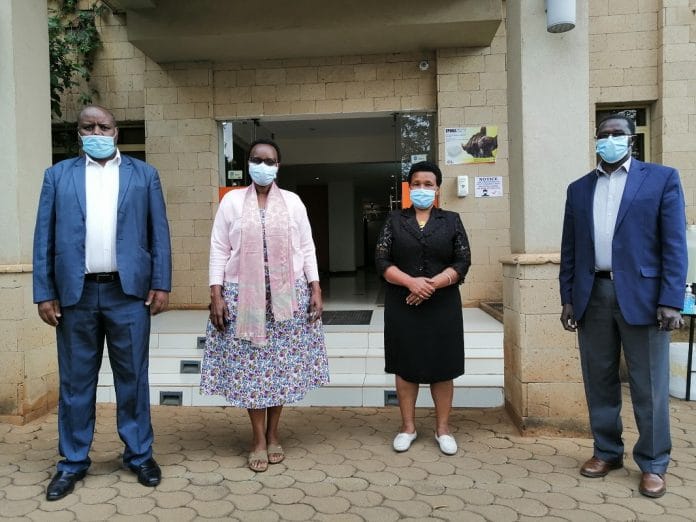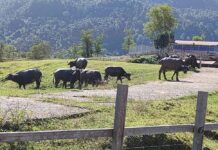THE first-ever government-funded research project on Synthetic Biology in Kenya has been launched. The project, funded under the country’s National Research Fund, will employ synthetic biology innovations in addressing intractable challenges in food security and healthcare.
Led by a multidisciplinary team of local researchers, the project titled Developing low-cost diagnostic tools and biosensors for rapid detection of crop and human pathogens in Kenya aims at harnessing the power of synthetic biology to provide viable solutions to delayed disease surveillance and intervention in the country. The team is composed of Drs Margaret Karembu, Director ISAAA AfriCenter, who is the Principal Investigator (PI); Benson Mburu, Principal Scientist at the National Commission for Science, Technology & Innovation; Margaret Muturi, Senior Lecturer at Kenyatta University; and Professor Douglas Miano, a molecular virologist at the University of Nairobi.
Synthetic biology is a rapidly emerging interdisciplinary field with major potential for socio-economic growth and development. The technology offers practical solutions to challenges cutting across human and livestock health, agriculture, industry, environmental management, and restoration. In recent years, synthetic biology has provided a toolbox of well-defined genetic parts and exciting permutations for building new biochemical functions. This has opened up a vast world of possibilities in using existing and/or engineered biological building blocks to create useful, functional systems and products. In Kenya and indeed Africa, synthetic biology has great potential to contribute to national development agenda by anchoring a sustainable bioeconomy. This will be done by leveraging low-cost, rapid diagnostic kits and biosensors in support of health and agricultural systems, as well as supporting environmental conservation and restoration programs.
The inaugural project will develop sensing devices for use in detection of crop and human pathogens. Besides, it will go a step further to explore policy and legal frameworks required in adopting synthetic biology innovations in the country, while building a shared public understanding on the opportunities and benefits of the technology through effective communications.
The team will work closely with Professor Paul Freemont‘s team at Imperial College London (UK) in establishing technology transfer models compliant with both countries’ standards and regulations. “All devices will be validated and approved as fit-for-use through relevant state regulatory agencies before deployment,” said Dr. Karembu. Ultimately, the 3-years’ research project will contribute towards revitalizing and harnessing Science, Technology, and Innovation for Kenya’s prosperity and global competitiveness as stipulated in the national development agenda. The project will also inspire more government and private sector investments in synthetic biology, providing innovative and adaptable solutions to crucial societal challenges.
















